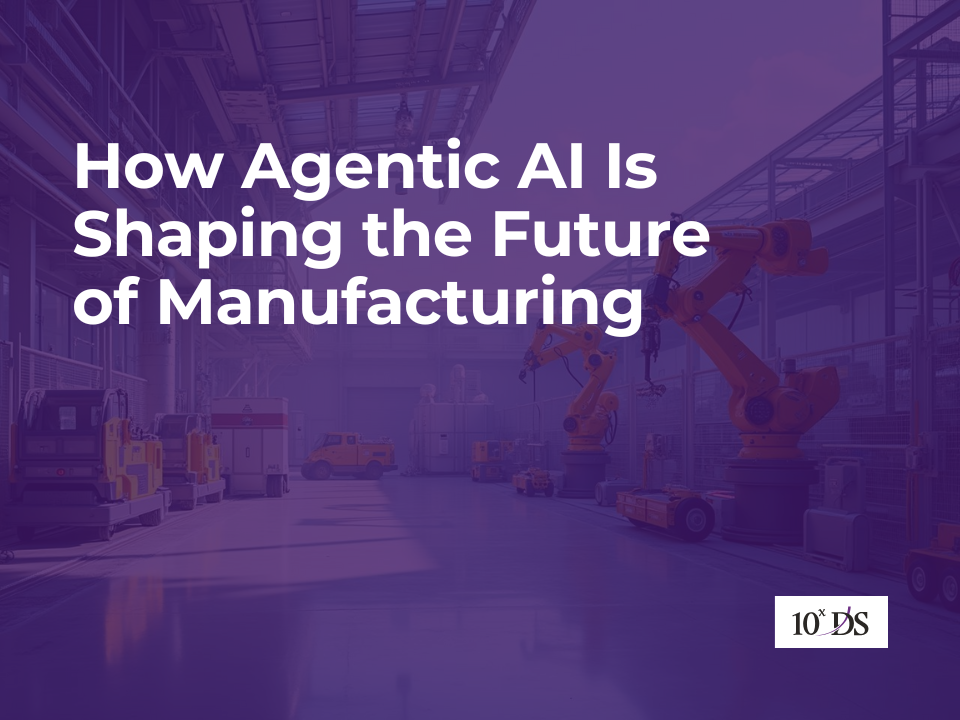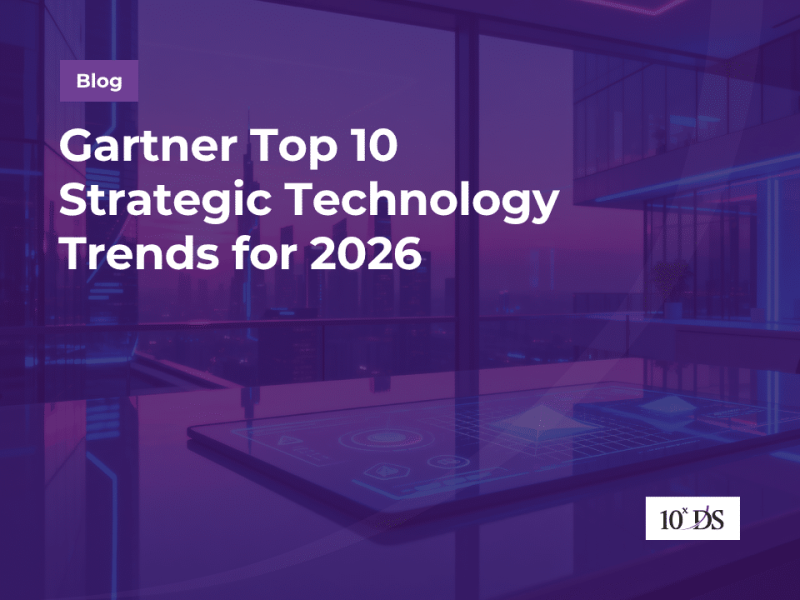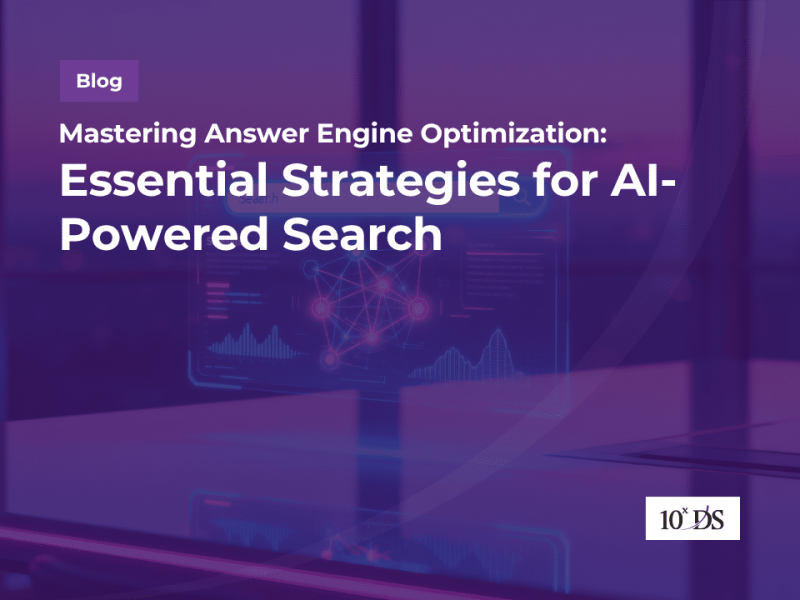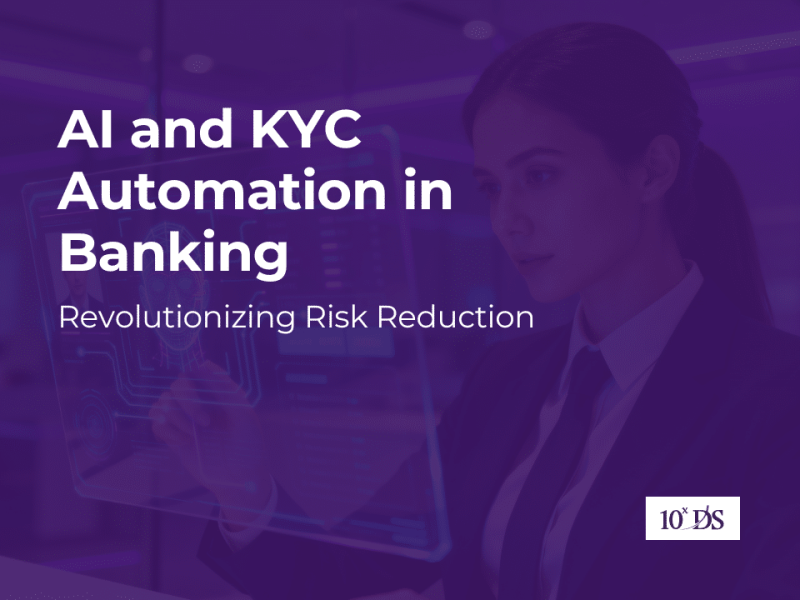
How Agentic AI Is Shaping the Future of Manufacturing
The manufacturing industry is undergoing a significant transformation driven by technological advancements. At the forefront of this revolution is Agentic Artificial Intelligence (AI)—a sophisticated form of AI that enables systems to autonomously perceive, decide, and act within complex environments. Unlike traditional AI, which operates based on predefined algorithms and requires human intervention for decision-making, agentic AI possesses the capability to understand context, learn from data, and make real-time decisions without human input. This autonomy allows manufacturing systems to adapt to changing conditions, optimize processes, and enhance overall efficiency.
The Evolution of AI in Manufacturing: From Automation to Autonomy
Historically, manufacturing has relied heavily on mechanization and automation to improve productivity. Early automation involved machinery performing repetitive tasks with minimal variability. However, these systems lacked the flexibility to adapt to new tasks or changing environments. The introduction of traditional AI brought about improvements in process optimization and quality control, enabling machines to perform more complex tasks based on set parameters. Despite these advancements, traditional AI systems still required significant human oversight and were limited in their ability to handle unforeseen situations.
Agentic AI represents the next leap in this evolution. By integrating advanced algorithms and machine learning models, agentic AI systems can autonomously manage tasks such as predictive maintenance, supply chain logistics, and quality control. These systems continuously learn from data, allowing them to adapt over time and make informed decisions that enhance manufacturing operations.
Core Components of Agentic AI in Manufacturing
- Perception: Utilizing sensors and data collection tools, agentic AI systems gather real-time information from the manufacturing environment. This data includes machine performance metrics, environmental conditions, and product quality indicators.
- Cognition: Advanced algorithms process the collected data to identify patterns, anomalies, and trends. This cognitive capability enables the system to understand the current state of operations and predict future outcomes.
- Action: Based on its analysis, the AI system autonomously makes decisions and executes actions to optimize manufacturing processes. This could involve adjusting machine settings, re-routing workflows, or scheduling maintenance activities.
Applications of Agentic AI in Manufacturing
Predictive Maintenance
Traditional maintenance strategies often operate on fixed schedules or reactive approaches, leading to unnecessary downtime or unexpected equipment failures. Agentic AI transforms this paradigm by enabling predictive maintenance. By continuously monitoring machinery through sensors and analyzing performance data, agentic AI can identify early signs of wear or potential failures. This proactive approach allows manufacturers to perform maintenance only when needed, thereby reducing downtime, extending equipment lifespan, and lowering maintenance costs.
Autonomous Quality Control
Maintaining high product quality is paramount in manufacturing. Agentic AI enhances quality control by autonomously inspecting products during production. Using computer vision and machine learning algorithms, these systems can detect defects or deviations from quality standards in real-time. When a defect is identified, the AI can adjust the manufacturing process to correct the issue or remove the defective item from the production line. This leads to improved product quality and reduced waste.
Supply Chain Optimization
Efficient supply chain management is crucial for timely production and delivery. Agentic AI systems analyse data from various sources, including market trends, supplier performance, and inventory levels, to optimize supply chain operations. They can predict demand fluctuations, identify potential disruptions, and suggest alternative suppliers or logistics routes. This results in a more resilient supply chain, reduced operational costs, and improved responsiveness to market changes.
Dynamic Scheduling and Resource Allocation
Manufacturing environments are often subject to changing demands and unforeseen disruptions. Agentic AI enables dynamic scheduling by autonomously adjusting production plans in response to real-time data. For example, if a machine goes offline unexpectedly, the AI system can reallocate tasks to other machines or reschedule production to minimize delays. This flexibility enhances resource utilization and ensures that production targets are met despite challenges.
Human-Robot Collaboration
The integration of agentic AI facilitates seamless collaboration between human workers and robotic systems. AI-powered robots, equipped with sensors and learning algorithms, can work alongside humans, assisting with tasks that are hazardous or require precision. These robots can adapt to human actions in real-time, ensuring a safe and efficient working environment. This collaboration not only enhances productivity but also improves worker safety and job satisfaction.
Benefits of Implementing Agentic AI in Manufacturing
- Increased Efficiency: By automating complex decision-making processes and optimizing workflows, agentic AI significantly boosts production efficiency. Tasks that previously required extensive human intervention can now be managed autonomously, freeing up human resources for more strategic roles.
- Cost Reduction: Predictive maintenance and optimized resource allocation lead to substantial cost savings. Reducing unplanned downtime and minimizing waste directly impact the bottom line.
- Enhanced Product Quality: Real-time monitoring and autonomous quality control ensure that products meet stringent quality standards, leading to higher customer satisfaction and reduced returns or recalls.
- Agility and Flexibility: Agentic AI allows manufacturers to quickly adapt to market changes, customize products, and respond to customer demands with greater agility. This flexibility is crucial in today’s fast-paced and competitive market.
- Sustainability: Optimized processes and reduced waste contribute to more sustainable manufacturing practices. Efficient energy use and minimized material waste align with environmental regulations and corporate social responsibility goals.
Who Stands to Benefit from Agentic AI in Manufacturing?
Agentic AI isn’t just another upgrade—it’s a game-changer for manufacturers aiming to stay ahead in an increasingly competitive, tech-driven world. The companies most likely to be drawn to this revolutionary technology are those that operate at scale, demand high precision, and prioritize efficiency. Here’s a look at the key players who would find Agentic AI irresistible:
- Automotive Giants: The automotive industry is synonymous with innovation, and companies like Tesla and BMW are already integrating AI into their smart factories. But with agentic AI, we’re talking about self-adjusting assembly lines, predictive maintenance that eliminates breakdowns, and real-time defect detection. Imagine a production system that fixes quality issues before a car even rolls off the line—that’s the power of agentic AI.
- Aerospace & Defence: For aerospace companies, precision and safety are non-negotiable. With agentic AI, firms like Boeing and Airbus can optimize complex supply chains, enhance predictive maintenance for aircraft components, and use AI-powered robotics to build safer, more efficient aircraft. Given the stringent compliance and zero-error tolerance in aerospace, AI that autonomously ensures quality and efficiency is a major attraction.
- Semiconductor & Electronics Leaders: The semiconductor industry is one of the most complex and fast-evolving sectors, where even a tiny flaw can result in millions of dollars in losses. TSMC, Intel, and Samsung can use agentic AI to predict process anomalies, automate chip manufacturing, and reduce material wastage—ultimately accelerating production while maintaining near-perfect accuracy.
- Consumer Goods & Luxury Brands: High-end manufacturers need AI to balance mass production with customization. Nike and Adidas can leverage agentic AI to create personalized footwear at scale, while brands like Rolex and Louis Vuitton can optimize high-precision manufacturing without sacrificing craftsmanship. With AI-driven smart scheduling, quality control, and predictive demand planning, luxury brands can maintain exclusivity while streamlining operations.
- Energy & Heavy Industry: In oil, gas, and heavy industry, downtime costs millions. Siemens and GE can deploy agentic AI to manage industrial assets, predict failures, and automate safety protocols. For companies like Shell and ExxonMobil, AI can optimize refinery operations, detect leaks before they become disasters, and even assist in sustainable energy production.
Who Will Lead the Charge in AI-Powered Manufacturing?
The companies that will truly dominate the future are those that embrace self-learning, self-optimizing, and autonomous decision-making AI today. Agentic AI is not just about efficiency—it’s about redefining what’s possible. Whether it’s Tesla pushing the limits of smart manufacturing, TSMC perfecting semiconductor production, or Louis Vuitton crafting AI-driven luxury, the leaders of tomorrow are those who integrate this cutting-edge technology today.
Challenges and Considerations
Implementing agentic AI in manufacturing comes with a few key challenges. First, integration with legacy systems can be tricky, requiring investments in IoT, cloud computing, and data analytics. Second, workforce adaptation is essential, as AI automates tasks and shifts human roles, making upskilling a priority. Third, security and privacy risks must be managed to protect sensitive data from breaches. Fourth, high initial costs can be a hurdle, especially for smaller manufacturers, making phased adoption a smart approach. Finally, ethical and regulatory concerns around AI decision-making, transparency, and compliance need careful attention. While these challenges exist, the long-term benefits make AI adoption a game-changer.
The Future of Agentic AI in Manufacturing
Smart Factories and Industry 4.0
Agentic AI plays a crucial role in the evolution of Industry 4.0, where smart factories leverage interconnected AI-driven systems to enhance production efficiency. Future factories will operate with minimal human intervention, relying on AI agents to optimize supply chains, adjust production schedules, and maintain equipment autonomously.
AI-Driven Customization
Manufacturers are moving towards mass customization, where AI enables personalized product configurations based on customer preferences. Agentic AI will allow production lines to dynamically adjust settings, materials, and processes to create customized products efficiently without compromising speed or cost-effectiveness.
Human-AI Collaboration
Rather than replacing human workers, agentic AI will enhance collaboration between humans and machines. AI-powered cobots (collaborative robots) will assist workers in complex tasks, ensuring precision, reducing fatigue, and improving safety. The synergy between human expertise and AI-driven automation will drive innovation and productivity.
Sustainable Manufacturing
As environmental concerns grow, agentic AI will contribute to sustainable manufacturing practices. AI-driven systems will optimize energy consumption, minimize waste, and ensure compliance with environmental regulations. Predictive analytics will help manufacturers adopt eco-friendly materials and processes, aligning with sustainability goals.
Conclusion
Agentic AI is redefining the manufacturing landscape. From predictive maintenance to intelligent automation, it empowers organizations to operate smarter, faster, and more sustainably. Companies that embrace this technology today will shape the future of manufacturing tomorrow.
Want to learn how agentic AI can transform your operations? Get in touch with the experts at 10xDS to explore what’s possible.


